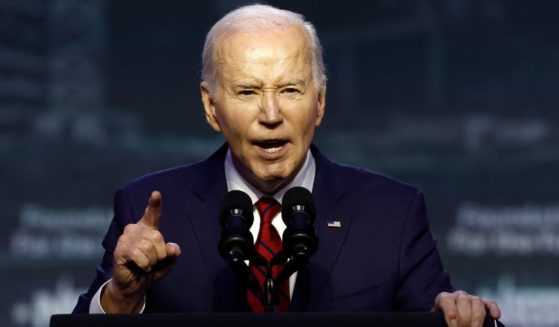Russian Defense Chief Makes Dangerous Claim About a Radioactive Device
Russia’s defense chief on Sunday alleged that Ukraine was preparing a “provocation” involving a radioactive device, a stark claim that was strongly rejected by Ukrainian and British officials amid soaring tensions as Moscow struggles to stem Ukrainian advances in the south.
Russia’s Defense Minister Sergei Shoigu made the allegations in phone calls with his counterparts from the United States, Britain, France and Turkey.
Russia’s defense ministry said Shoigu voiced concern about “possible Ukrainian provocations involving a ‘dirty bomb,’” a device that uses explosives to scatter radioactive waste.
It doesn’t have the devastating effect of a nuclear explosion, but it could expose broad areas to radioactive contamination.
Russian authorities have repeatedly made allegations that Ukraine could detonate a dirty bomb in a false flag attack and blame it on Moscow.
Ukrainian authorities, in turn, have accused the Kremlin of hatching such a plan.
British Defense Secretary Ben Wallace strongly rejected Shoigu’s claim and warned Moscow against using it as a pretext for escalation.
The British Ministry of Defense noted that Shoigu in a call with Wallace “alleged that Ukraine was planning actions facilitated by Western countries, including the U.K., to escalate the conflict in Ukraine.”
“The Defense Secretary refuted these claims and cautioned that such allegations should not be used as a pretext for greater escalation,” the ministry said.
“The Defense Secretary also reiterated U.K. and wider international support for Ukraine and desire to de-escalate this conflict.”
Ukraine’s presidential adviser Mykhailo Podolyak also dismissed Shoigu’s claims as an “absolute and quite predictable absurdity from those who believe that they blatantly lie and make people believe in that.”
Ukraine’s top diplomat, Dmytro Kuleba, said his country had neither dirty bombs nor plans to acquire them.
The French Ministry of the Armed Forces said that Shoigu told his counterpart, Sebastien Lecornu, that the situation in Ukraine was rapidly worsening and “trending towards uncontrollable escalation.”
Shoigu’s call with U.S. Secretary of Defense Lloyd Austin was the second in three days.
A U.S. official familiar with the Sunday call said that Russian allegations of a Ukraine provocation came up. The official spoke on condition of anonymity to discuss a private call.
The mention of the dirty bomb threat in Shoigu’s calls with his counterparts seemed to indicate the threat of such an attack has risen to an unprecedented level.
“It appears that there is a shared feeling that the tensions have approached the level that could raise the real threat for all,” Fyodor Lukyanov, the Kremlin-connected head of the Council for Foreign and Defense policies, a Moscow-based group of top foreign affairs experts, said in a commentary on Shoigu’s phone calls.
The Western Journal has reviewed this Associated Press story and may have altered it prior to publication to ensure that it meets our editorial standards.
Truth and Accuracy
We are committed to truth and accuracy in all of our journalism. Read our editorial standards.












